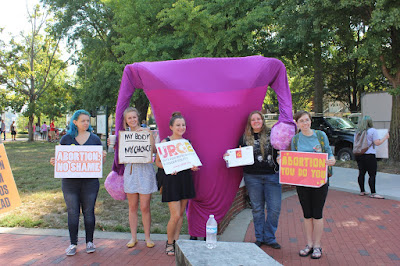Unity (June Newsletter)

This month marks the end of my service as a youth minister. Though we are excited about the adventure ahead, leaving our ministry with the youth group known as The Underground is also difficult for both Aubrie and me—for this is a group with which we have great unity.
Veritable unity is something which has become difficult to understand, let alone pursue, in a culture such as our own. I might feel some camaraderie with the neighbors in my apartment complex. I might nod at the man at Starbuck’s who orders the same drink as me. But, do these commonalities breed any sort of deeper unity?
In Christianity and Liberalism, J. Gresham Machen responds to the attacks of theological liberalism (and its anti-supernatural prejudice) on orthodox Christianity. He writes, “In the sphere of religion, as in other spheres . . . the really important things are the things about which men will fight.”
What is truly important is not some vague appreciation for an undefined deity, but the answer to the question of who that God is. What really matters is not merely championing the banner of “humanity,” but answering the critical question of “What defines a human?” Although holding unswervingly to the answers to these questions may bring us immediate division with much of our culture, it is the only way we will find any sort of unity truly worth having—for it breeds a bond our relativistic world simply cannot understand.
When I took my youth group to the streets in peaceful demonstrations to defend the unborn, we were yelled at, pushed, and even spat upon. But, though all of this was done with the intent to shake our resolve, the exact opposite was the case. We were fortified in our purpose because we were doing something the jeerers could not understand. As children of relativism, they cannot truly grasp what it means for something to be objectively wrong. They don’t understand why one would go to the trenches for something they consider preference.
This is perhaps partly why our culture is little more than a fragmented world of lost community. We may share common drinks at Starbuck’s, but rarely do we find anything worthy of unity. In our pursuit of being “open-minded,” we never come to any answers. Much of the “unity” we have is without purpose and thus utter farce.
But that is not the case for the radical generation, for those who hold to the really important things even in the face of a hostile culture. In the end, this is how we find unity of which others may never even dream—because they don’t even know it exists.


Comments
Post a Comment